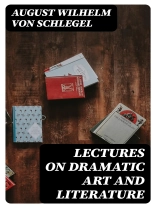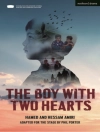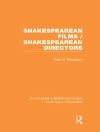In ‘Lectures on Dramatic Art and Literature, ‘ August Wilhelm von Schlegel presents a comprehensive analysis of European drama, focusing particularly on the evolution of the form from classical antiquity to his contemporary era. Schlegel adopts a nuanced yet accessible literary style, blending critical analysis with personal insights that reflect the Romantic ideals of his time. His lectures not only engage with the works of great playwrights such as Shakespeare and Goethe but also critique the aesthetic principles that govern these dramatic texts, positioning his work within the broader discourse of 19th-century literary criticism and the burgeoning Romantic movement. August Wilhelm von Schlegel, a notable German poet, translator, and critic, was pivotal in shaping the Romantic literary landscape. His deep-seated knowledge of classical literature and philosophy, augmented by his own experiences in the vibrant cultural milieu of early 19th-century Europe, undoubtedly influenced his approach to drama. His role as a translator of Shakespeare also provides a profound lens through which he critiques and celebrates the art of theater, leading him to articulate the intrinsic value of drama as a reflection of human experience. ‘Lectures on Dramatic Art and Literature’ is an essential read for anyone interested in the intersection of drama and literary criticism. Schlegel’s insightful observations not only enhance our understanding of dramatic literature but also invite us to reconsider the impact of theatrical works on society. Whether you are a scholar, a playwright, or a devoted theater enthusiast, this book is a treasure trove of knowledge that illuminates the enduring significance of drama in culture.
About the author
August Wilhelm von Schlegel (1767–1845) was a seminal German poet, critic, and scholar, renowned for his substantial contribution to literary criticism and his influence on the Romantic movement. Schlegel was born in Hanover, the son of a Lutheran pastor, imbuing his early years with classical education. He studied at the University of Göttingen, where he developed a passion for the arts that would shape his career. His expertise spanned multiple languages and cultures, enriching his literary analysis and translations, particularly of Shakespeare, which brought a new standard to German literary translation. August Wilhelm, alongside his brother Friedrich, played a critical role in developing the Romantic school of thought, emphasizing the historical and cultural contexts of literature and the importance of national identity. His ‘Lectures on Dramatic Art and Literature’ are a testament to his systematic approach to literary history and criticism, offering insightful views on the essence of drama and its evolution, influencing literary theory well beyond his time. Schlegel’s work laid the groundwork for comparative literature and hermeneutics, and his discerning pursuits in philology and Indo-European languages also placed him at the forefront of linguistic studies. He was a distinguished member of the intellectual circle in Jena and later in life served as a professor in Bonn. Schlegel’s legacy is tightly interwoven with the intellectual fabric of European Romanticism and his scholarly methods endure in modern literary criticism (Paulin, 1985).












